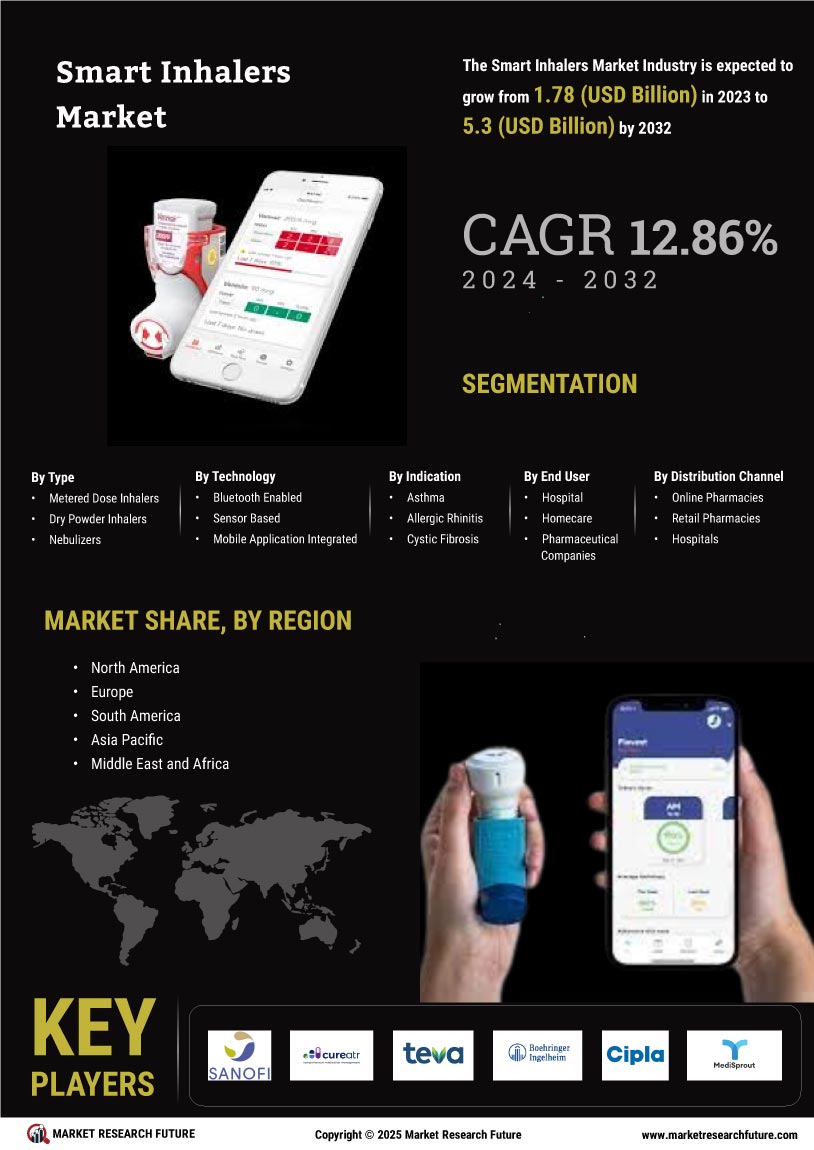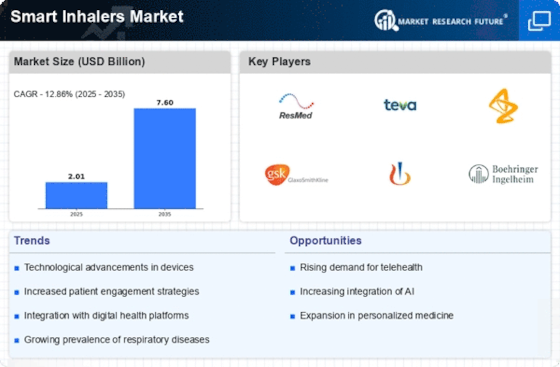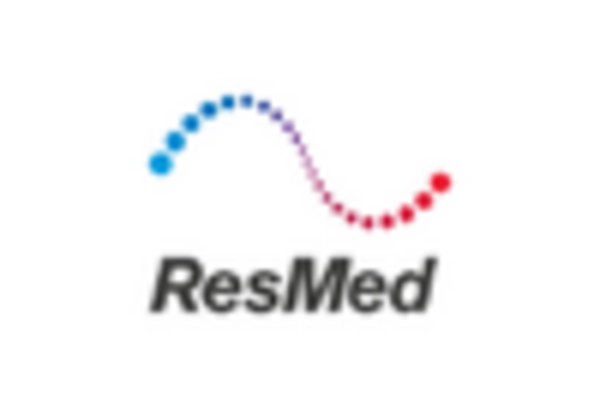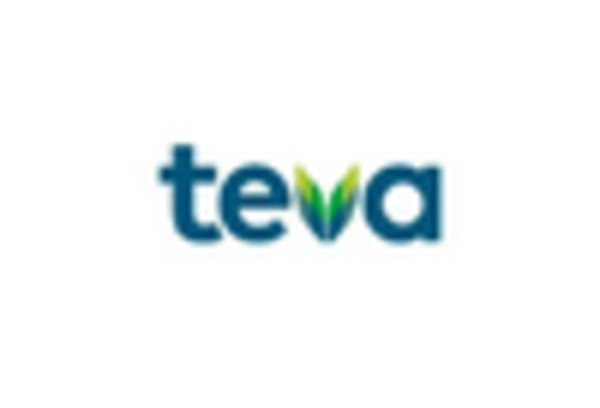Technological Advancements
The Smart Inhalers Market is experiencing a surge in technological advancements that enhance the functionality and usability of inhalers. Innovations such as Bluetooth connectivity, mobile applications, and real-time monitoring systems are becoming increasingly prevalent. These technologies allow for better tracking of medication usage and adherence, which is crucial for patients with chronic respiratory conditions. According to recent data, the integration of smart technology in inhalers is projected to increase patient adherence rates by up to 30%. This trend not only improves health outcomes but also drives the demand for smart inhalers, as healthcare providers recognize the potential for improved patient management. As a result, the Smart Inhalers Market is likely to witness significant growth fueled by these technological innovations.
Regulatory Support and Incentives
The Smart Inhalers Market is also being propelled by regulatory support and incentives aimed at promoting the adoption of advanced medical technologies. Various health authorities are recognizing the potential benefits of smart inhalers in improving patient adherence and health outcomes. As a result, there are initiatives in place that encourage the development and integration of these devices into standard treatment protocols. For instance, some regions offer financial incentives for healthcare providers who implement smart inhalers in their practices. This regulatory backing not only fosters innovation but also enhances the credibility of smart inhalers among healthcare professionals. As such, the Smart Inhalers Market is poised for growth, driven by supportive policies that facilitate the adoption of these advanced technologies.
Increased Focus on Patient-Centric Care
The Smart Inhalers Market is benefiting from an increased focus on patient-centric care within healthcare systems. This approach emphasizes the importance of involving patients in their own treatment plans, which aligns well with the functionalities offered by smart inhalers. These devices empower patients by providing them with data on their medication usage and health status, fostering a sense of ownership over their treatment. As healthcare providers shift towards more personalized care models, the demand for smart inhalers is expected to rise. Furthermore, studies indicate that patient engagement can lead to improved health outcomes, which is a key consideration for healthcare systems. Consequently, the Smart Inhalers Market is likely to expand as more patients and providers recognize the benefits of these innovative devices.
Rising Prevalence of Respiratory Diseases
The Smart Inhalers Market is significantly influenced by the rising prevalence of respiratory diseases such as asthma and chronic obstructive pulmonary disease (COPD). According to estimates, over 300 million people worldwide suffer from asthma, while COPD affects approximately 250 million individuals. This increasing patient population necessitates effective management solutions, thereby driving the demand for smart inhalers. These devices offer features that facilitate better disease management, such as tracking inhaler usage and providing reminders for medication. The growing awareness of respiratory health and the need for effective treatment options are likely to propel the Smart Inhalers Market forward, as healthcare systems seek to improve patient outcomes and reduce healthcare costs associated with unmanaged respiratory conditions.
Growing Investment in Digital Health Solutions
The Smart Inhalers Market is witnessing a growing investment in digital health solutions, which is likely to enhance the development and distribution of smart inhalers. Investors are increasingly recognizing the potential of digital health technologies to transform patient care, leading to a surge in funding for startups and established companies focused on smart inhaler development. This influx of capital is facilitating research and development efforts, resulting in more sophisticated and user-friendly devices. Furthermore, the integration of artificial intelligence and machine learning into smart inhalers is expected to improve their functionality and effectiveness. As a result, the Smart Inhalers Market is anticipated to expand, driven by the increasing financial support for innovative health solutions.
















